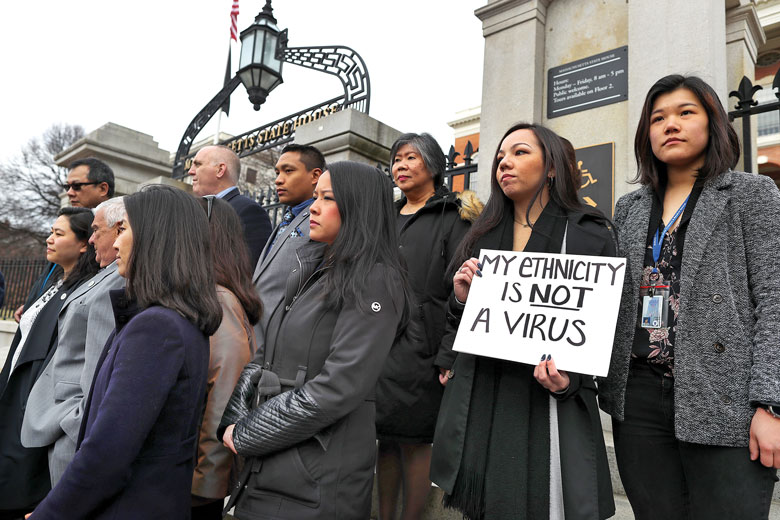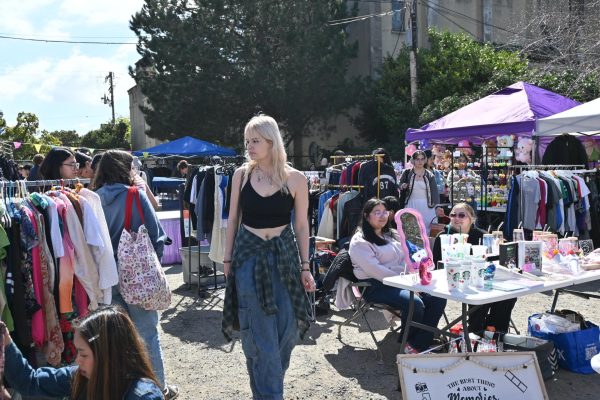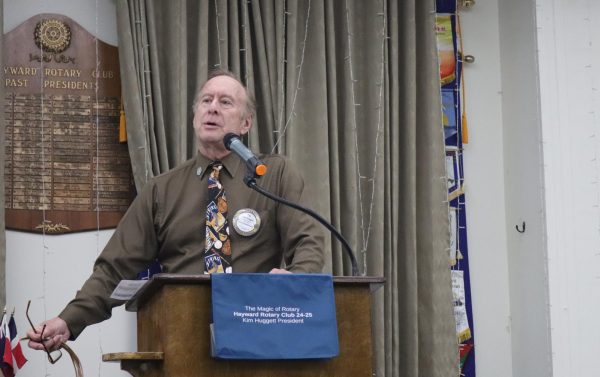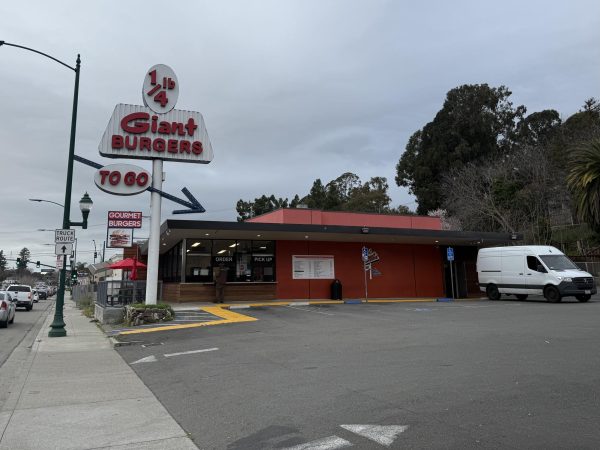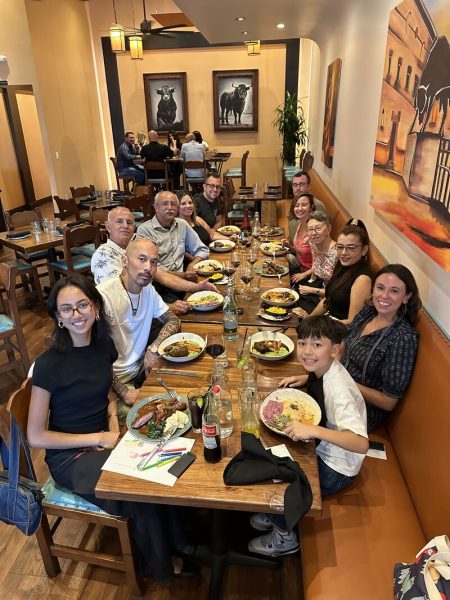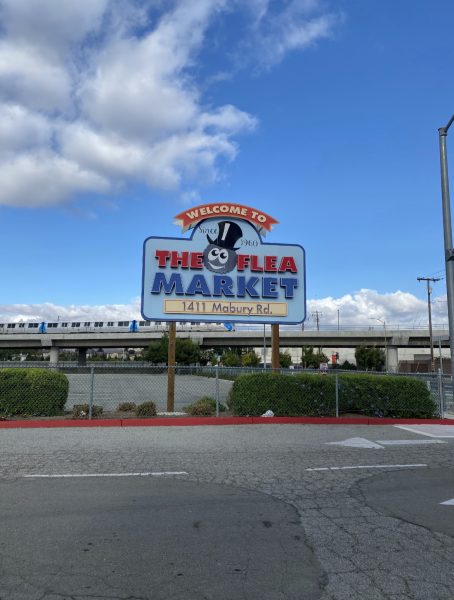Recent Spike in Hate Crimes Against Asian Americans, especially in Bay Area
A recent surge in hate crimes rooted in xenophobia is on a steep incline, especially in the Bay Area. At the beginning of February, a 64-year-old grandmother was assaulted and robbed after withdrawing money from an ATM to purchase gifts for Lunar New Year.
Just last week, a viral video of an attack against a 91-year-old man in Oakland’s Chinatown, circled the internet. Surveillance cameras have captured similar horrific and seemingly aimless crimes against Asian American seniors throughout the Bay Area. Stop Asian American Pacific Islander (AAPI) Hate revealed that since the start of the pandemic, over 2,800 self-reported acts of racial discrimination deriving from anti-Asian sentiment have taken place, with over 708 of these reports from the Bay Area alone.
Ethan Alonzo, the previous Editor-in-Chief of The Pioneer explains the rhetoric Trump used during his presidency “does correlate” with the rise of hate crimes against Asian Americans. Alonzo explained that violence against the community “has always existed, people just now have a reason” to attack the community.
The ‘Model Minority’
The model minority myth spreading throughout communities creates an even more harmful environment for Asian Americans.
“Third privilege does not excuse what is going on right now,” Alonzo said.
The model minority myth perpetuated throughout the country posits Asian Americans are on upward mobility, creating a false narrative that Asian Americans or Pacific Islanders groups do not experience racial discrimination.
Deriving from the Civil Rights Era, the myth was employed as a tactic to prevent the full unity of oppressed groups in America. Alonzo says he has seen this play out on platforms such as TikTok, reading comments left by African Americans writing “COVID, COVID” under a video of two Asian Americans.
He says “people of color have been split apart in their own struggles…that singularity is ingrained” within the communities and plays out in a field of what Alzono refers to as “whose horse is bigger?”
In a time of calamity within the United States, Alonzo stresses the importance of unity between all communities to aid in protecting one another.
Community Policing
While President Biden has signed a memorandum denouncing the hate crimes against the Asian American and Pacific Islander communities,
Alonzo says the violence against Asian-Americans cannot “be solved by signing an executive order” but rather “the communities finding unity.”
The call for support from communities of color to unify against hate continues to grow louder across the Bay Area. As of Feb. 18, the Oakland Police Department assigned an Asian Liaison officer to assist in Oakland’s Chinatown in hopes of promoting an environment where the elderly within the community can come forward about their experiences and seek protection.
However, this does not offer consolidation to all business owners within Chinatown as many are seeking other means of protection through hiring private armed security officers, standing guard outside their shops.
Fear of over-policing in communities continues to push activists wondering whether police action is the correct way to protect the community.
“The right step…should be community governments and state governments supplying their people with the resources they need” though “patrolling [shouldn’t] be forever,” Alonzo said.
Historically, police have targeted black and brown communities, disproportionately arresting them at higher rates, resulting in mass incarceration.
This posits another problem arising from addressing racial injustice within the United States: understanding how to protect the communities which have been targets of over-policing throughout history.
In the wake of grassroots social justice marches across the country in protest of police brutality and systemic oppression, Bay Area organizations such as the Black Bay Area and the Ella Baker Center for Human Rights have joined together in support of the Asian American community. The Black Area, in an Instagram post, raised funds to offer monetary assistance to Asian-led social justice organizations.
Other organizations persuade their members to shop in Chinatown and other Asian-owned businesses severely impacted by xenophobic scares further perpetuated by COVID-19.
Alonzo recalls Asian markets still having toilet paper when all other major chain stores had empty shelves due to the false narratives that blame Asian Americans for the pandemic.
A Call for Action
Alonzo, along with many other social justice advocates, stresses the need for unifying their communities across racial lines.
One cook, Adrian Chang, took to Instagram under the account ‘mykitsunecafe’ advertising a Dumplings for Unity class, in order to “keep Oakland Chinatown safe and build bridges between Black & Asian Communities!”
Alonzo says there is “anti-blackness ingrained” in Asian culture perpetuating an “us and them” narrative.
Nikki Fortunato Bas, Oakland City Council President, expressed in a tweet the need for “healing and solidarity” to overcome community violence “community-led safety ambassadors in Chinatown.”
Oakland’s youth are already stepping up to the challenge of protecting their communities. Compassion in Oakland, a volunteer group, has already reached over 2,000 followers, bringing awareness to the issue of violence in their communities. The group aims to recruit volunteers to escort the elderly around Oakland.
In a time where the Asian community is seeing a drastic attack on their elders, the Bay Area community is working together to fight the injustice and end violence against the communities through unity.
Chances to volunteer to protect the community can be found through the Instagram page of compassioninoakland.
It is time for all of the Bay Area to unify against hate in our communities. As Ethan Alzono says, “Rise together or fall apart.”


